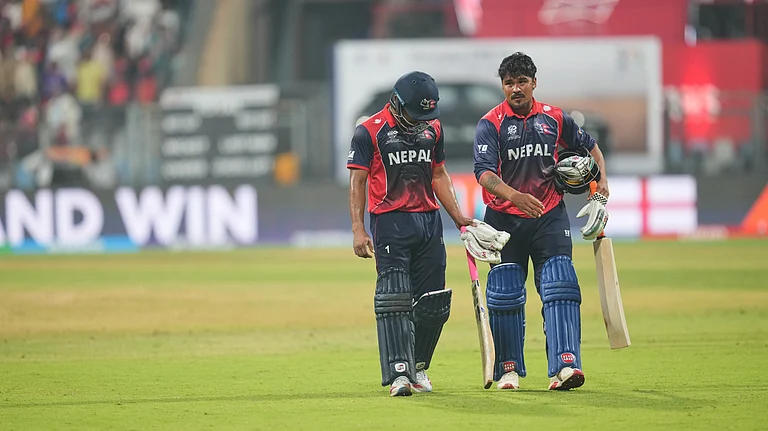Prize citation: "who in innumerable guises portrays thesurprising involvement of the outsider"
Your Majesties, Your Royal Highnesses, Esteemed Nobel Laureates, Ladies and Gentlemen,
To write is to awaken counter-voices within oneself, and to dare enter into dialoguewith them. The dangerous attraction of the inner self is John Coetzee's theme: the senses and bodies ofpeople, the interiority of Africa. "To imagine the unimaginable" is the writer's duty. As apost-modern allegorist, Coetzee knows that novels that do not seek to mimic reality best convince us thatreality exists.
Coetzee sees through the obscene poses and false pomp of history, lendingvoice to the silenced and the despised. Restrained but stubborn, he defends the ethical value of poetry,literature and imagination. Without them, we blinker ourselves and become bureaucrats of the soul.
John Coetzee's characters seek refuge beyond the zones of power. Life and Times ofMichael K. gives form to the dream of an individual outside the fabric of human coexistence. Michael K.is a virgin being, viewing the world from an infinite remove. Although exposed to the violence of racisttyranny, he achieves through passivity a freedom that confounds both the apartheid regime and the guerrillaforces simply because he wants nothing: neither war nor revolution, neither power nor money.
Waiting for the Barbarians is a disturbing love story about wanting to possessanother person and to turn that person inside out as though she were a riddle to be solved. Everyone who hasrecognised the threat of totalitarianism and felt the desire to own another person can learn from Coetzee'sdark fables. With intense concreteness and verbally disciplined desperation, he tackles one of the greatproblems of the ages: understanding the driving forces of brutality, torture and injustice.
Who does the writing, who seizes power by taking pen in hand? Can black experience bedepicted by a white person? In Foe, Friday is an African, already dehumanised by Defoe. To givespeech to Friday would be to colonise him and deny him what remains of his integrity. The girl in Waitingfor the Barbarians speaks an unintelligible language and has been blinded by torture; Michael K has aharelip and Friday has had his tongue cut out. His life is recounted by Susan Barton: that is, through 'whitewriting', the title of one of Coetzee's books.
However hard we attempt to grasp Michael and Friday, they have been made, by Coetzee,unsullied by interpretation. They remain silent. But between the lines, in what is unspoken, there is adistillation of feelings uncommon in contemporary literature.
The myth of the survivor on a desert island is the only story there is, Coetzee oncesaid. Several of his books treat similar solitudes. Is it possible to stand outside history? Does freedom fromthe diktat of authority exist? "I don't like accomplices. God, let me be alone," says JacobusCoetzee in the first novel, Dusklands, rejoicing in being abandoned. But he remains the tool ofhistory, and what compels the natives to take him seriously is his victorious violence. He does, however, askhimself whether the blacks populate a wonderful world closed to his own senses: "Perhaps I have killedsomething of inestimable value."
Coetzee's workruns like a high-tension cable across an inhospitable South African landscape. Mrs. Curran in Age of Ironhas witnessed monstrous actions but is unable to condemn them using the words of others. Neither will Coetzeehimself sign petitions or join in political rallies.
In the dystopian novel Disgrace, David Lurie does not achieve creativity andfreedom until, stripped of all dignity, he is afflicted by his own shame and history's disgrace. In this work,Coetzee summarises his themes: race and gender, ownership and violence, and the moral and political complicityof everyone in that borderland where the languages of liberation and reconciliation carry no meaning.
Every new book by Coetzee is astonishingly unlike his others. He intrudes into theuninhabited spaces of his readers. In his autobiographies, he pitilessly ransacks his former selves. He is theleast ingratiating of writers, offering no panaceas, no alternatives, no emergency exits. He will not liberatethe figures found frozen in the ice of history. Fiery restraint marks his writing.
Dear John Coetzee,
Your work is limited in pages, limitless in scope. What I have said in Swedish to thosepresent here is merely in so many words: "Don't listen to me, just go home and read, and some images willstay with you forever."
In your own life, you have recently moved along the very latitude that unites Cape Townand Adelaide. You may have left South Africa; it will hardly leave you. For the Swedish Academy, nationalroots are irrelevant and we do not recognize what in Europe is often called the literary periphery.
You are a Truth and Reconciliation Commission on your own, starting with the basic wordsfor our deepest concerns. You have dug deeply into the ground of the human condition with its cruelty andloneliness. You have given a voice to those outside the hierarchies of the mighty. With intellectual honestyand density of feeling, in a prose of icy precision, you have unveiled the masks of our civilization anduncovered the topography of evil.
I would like to express the warmest congratulations of the Swedish Academy as I nowrequest you to receive this year's Nobel Prize for Literature from the hands of His Majesty the King.





















